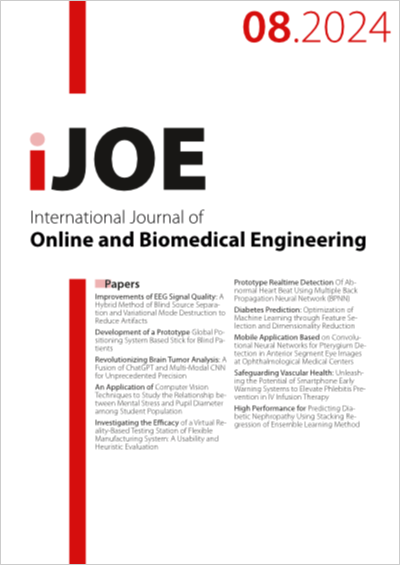Investigating the Efficacy of a Virtual Reality-Based Testing Station of Flexible Manufacturing System: A Usability and Heuristic Evaluation
DOI:
https://doi.org/10.3991/ijoe.v20i08.47883Keywords:
usability evaluation, heuristics evaluation, virtual reality, testing station, flexible manufacturing systemsAbstract
This study presents a comprehensive evaluation of a virtual reality-based testing station designed for flexible manufacturing systems. Given the intricate nature of flexible manufacturing systems and the demand for precision in learning, the integration of virtual reality emerges as a promising approach to enhance both student competence and engagement. By employing a combined assessment with the System Usability Scale and heuristic evaluation conducted by 36 students and 5 experts, respectively, the virtual reality-based testing station achieved an average usability score of 72.78, indicating good usability. Noteworthy heuristic challenges, particularly in the domains of ‘Realistic Feedback’ and ‘Navigation and Orientation Support,’ have been identified, providing valuable insights for potential refinements to the testing station. The outcomes of this study not only guide immediate improvements but also pave the way for future research endeavors aimed at elevating the learning outcomes in flexible manufacturing systems courses.
Downloads
Published
How to Cite
Issue
Section
License
Copyright (c) 2024 Didik Hariyanto, Vando Gusti Al Hakim, Amelia Fauziah Husna, Rohjai Badarudin, Nurhening Yuniarti, Dina Adinda

This work is licensed under a Creative Commons Attribution 4.0 International License.



